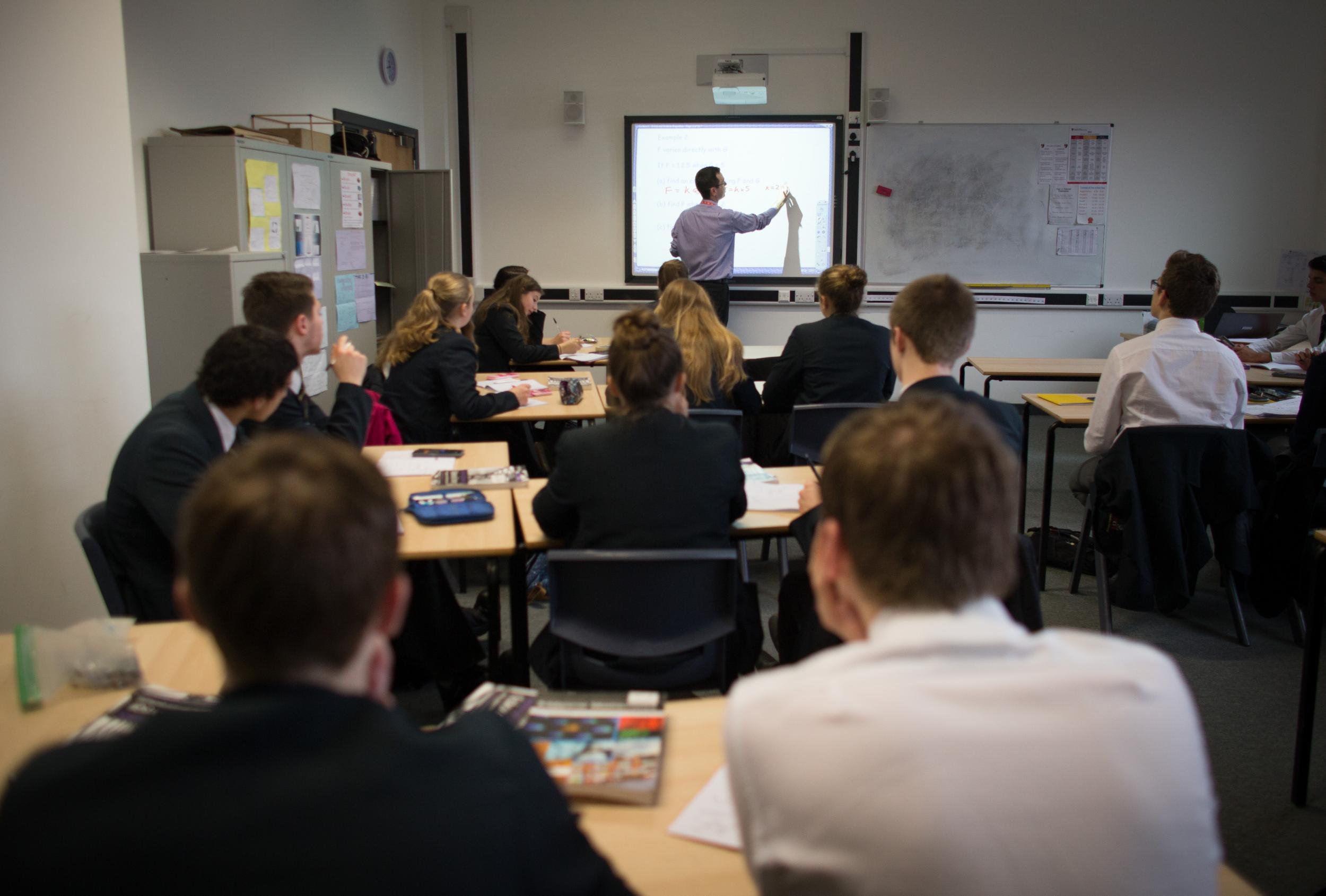Sexual violence in schools investigated by MPs after students say harassment dismissed as 'banter'
A total of 5,500 incidents of harassment were reported in schools over a three-year period

Your support helps us to tell the story
From reproductive rights to climate change to Big Tech, The Independent is on the ground when the story is developing. Whether it's investigating the financials of Elon Musk's pro-Trump PAC or producing our latest documentary, 'The A Word', which shines a light on the American women fighting for reproductive rights, we know how important it is to parse out the facts from the messaging.
At such a critical moment in US history, we need reporters on the ground. Your donation allows us to keep sending journalists to speak to both sides of the story.
The Independent is trusted by Americans across the entire political spectrum. And unlike many other quality news outlets, we choose not to lock Americans out of our reporting and analysis with paywalls. We believe quality journalism should be available to everyone, paid for by those who can afford it.
Your support makes all the difference.Sexual harassment and sexual violence in schools is to be investigated by MPs for the first time - amid reports sexualised behaviour has become a “social norm”, with incidents being “brushed off” by teachers.
Pupils who took part in preliminary research for the Women and Equalities Committee expressed concern over the existence of “lad culture” within the learning environment, many suggesting boys have a sense of “entitlement” to girls, pressuring them to have sex or face being “bullied for being a virgin”.
The research was undertaken through a series of workshops with 300 school and college students aged between 16 and 25 as part of a wider investigation to establish the scale and impact of sexual harassment and violence within schools.
Exposure to sex in the media 24 hours a day was suggested by students as a contributing factor towards the problem, while schools were accused of having too simplistic an approach towards sex education.
The inquiry comes after a BBC investigation last year revealed 5,500 incidents of sexual harassment, including 600 rapes, had been reported in UK schools across a three-year period.
The committee chairwoman, Conservative MP Maria Miller, said: “It’s clear from the young people we’ve heard from that sexual harassment and sexual violence in schools is having a profound impact on their day-to-day lives.
“We need to address this issue now, and stop it from blighting the lives of another generation of young people – both male and female.”
The report highlights the prevalence of 'sexting' among young people, with one in four admitting feeling pressured into sending text messages of a sexual nature and sexual activity in and around school.
“Lad culture is a big issue,” said Gemma, an 18-year-old who took part in the workshops.
“In my school lads would come up to girls and grab them, try and push them into the changing rooms and then say ‘don’t get upset, it’s just banter’”.
Some 18 per cent of young people reported being sexually harassed once or more than once and 34 per cent said they did not feel safe walking to and from school.
In 2015, Girlguiding UK found 75 per cent of girls and young women surveyed said anxiety about even potentially experiencing sexual harassment affected their lives in some way.
Responding to the report by the Women and Equalities Committee, Christine Blower, the general secretary of the National Union of Teachers, called for mandatory sex education in schools.
“Young people are subjected to ever-increasing pressure from the media and social media to conform to certain behaviour in relation to sexual activity, often in ways they find disturbing or unacceptable," she said.
“Teachers are aware of the struggle many students go through as a result of this pressure, but much is unreported. Schools do what they can to ensure that students feel both emotionally and physically safe but pressure in relation to these behaviours cannot be ignored.
“As today’s report highlights, the pressures young people face are not going away. It is therefore vital that PSHE and age-appropriate SRE [sex and relationships education] becomes mandatory in schools.”
Laura Bates, founder of the Everyday Sexism Project, also welcomed the inquiry, saying that there was a “widespread difficulty” in reporting sexual violence.
There were cases in schools of young women being pressurised into sexual acts or sexting and being punished by the school as well as their perpetrator, she said.
“We do also hear from girls who report this type of harassment or even unwanted sexual touching to teachers, only to be told, 'Boys will be boys,' or, 'He probably just likes you.”
The Women and Equalities Committee said it called for teachers, students, parents and youth organisations to share their experiences.
“We’ll use this evidence to find the most effective measures to reduce levels of sexual harassment and sexual violence in schools,” Ms Miller said
Subscribe to Independent Premium to bookmark this article
Want to bookmark your favourite articles and stories to read or reference later? Start your Independent Premium subscription today.
Join our commenting forum
Join thought-provoking conversations, follow other Independent readers and see their replies
Comments